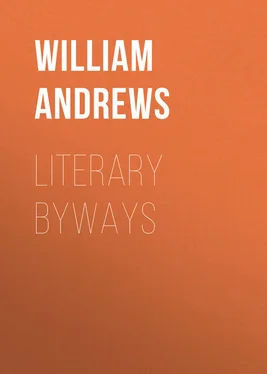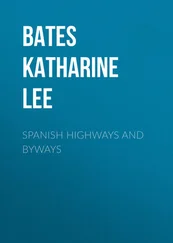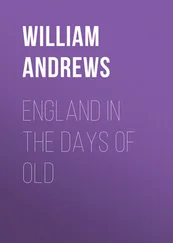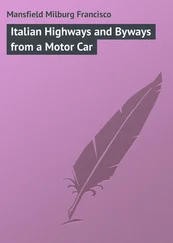William Andrews - Literary Byways
Здесь есть возможность читать онлайн «William Andrews - Literary Byways» — ознакомительный отрывок электронной книги совершенно бесплатно, а после прочтения отрывка купить полную версию. В некоторых случаях можно слушать аудио, скачать через торрент в формате fb2 и присутствует краткое содержание. Жанр: foreign_antique, foreign_prose, на английском языке. Описание произведения, (предисловие) а так же отзывы посетителей доступны на портале библиотеки ЛибКат.
- Название:Literary Byways
- Автор:
- Жанр:
- Год:неизвестен
- ISBN:нет данных
- Рейтинг книги:3 / 5. Голосов: 1
-
Избранное:Добавить в избранное
- Отзывы:
-
Ваша оценка:
- 60
- 1
- 2
- 3
- 4
- 5
Literary Byways: краткое содержание, описание и аннотация
Предлагаем к чтению аннотацию, описание, краткое содержание или предисловие (зависит от того, что написал сам автор книги «Literary Byways»). Если вы не нашли необходимую информацию о книге — напишите в комментариях, мы постараемся отыскать её.
Literary Byways — читать онлайн ознакомительный отрывок
Ниже представлен текст книги, разбитый по страницам. Система сохранения места последней прочитанной страницы, позволяет с удобством читать онлайн бесплатно книгу «Literary Byways», без необходимости каждый раз заново искать на чём Вы остановились. Поставьте закладку, и сможете в любой момент перейти на страницу, на которой закончили чтение.
Интервал:
Закладка:
The Earnings of Authors
Little is known of the remuneration of authors until the days of Dr. Samuel Johnson. Before his time, literary men, as a rule, depended on the generosity of patrons for their means of support, and as an acknowledgment of their obligations, dedicated their works to them. The dedications were frequently made in most fulsome terms. The position of the writer was certainly a mean one; indeed, it might fitly be pronounced degrading; when he had exhausted his possibilities of patronage, he starved. It was Johnson – a giant in the world of letters – who broke through the objectionable custom, and taught the author to look to the reading public for support, and not to a wealthy patron. It is not until the days of Samuel Johnson that the subject of literary earnings is of much importance; yet we may with advantage glance at a few payments made prior to his age.
We do not know the amount Shakespeare received for his plays, but it is certain that his connection with the theatre in London in a few years realised for him a fortune, and, at a comparatively early age, enabled him to return to his own town, a man of independent means. Oldys, in one of his manuscripts, says that “Hamlet” was sold for £5; but he does not mention his authority for the statement. It appears, from a publication of Robert Greene’s, in 1592, the price of a drama was twenty nobles, or about £6 13s. 4d. of current coin.
Small must have been the literary pay of Spenser, Butler, and Otway, since they feared to die for want of the simple necessaries of life. Milton sold “Paradise Lost” for £5 down, to be followed by £15 if a second and third large editions were required. The first edition consisted of 1,500 copies, and in two years 1,300 were sold. The balance was not disposed of until five years later. This powerful poem, when given to the world, met with some adverse criticism. The poet Waller wrote of it thus: “The old, blind schoolmaster, John Milton, hath published a tedious poem on the fall of man; if its length be not considered a merit, it hath no other.” A greater poet than Waller – Dryden – recognised its merits, and said: “Undoubtedly, ‘Paradise Lost’ is one of the greatest, most noble, and most sublime poems which either this age or nation has produced.” Dryden wrote the following epigram referring to Homer, Virgil, and Milton: —
“Three poets – in three distant ages born —
Greece, Italy, and England did adorn;
The first in loftiness of thought surpassed,
The next in majesty, in both the last.
The force of Nature could no further go;
To make a third, she joined the former two.”
Milton’s poem has been praised by the greatest critics, and it is still very much read. It appears in many forms, and the annual sale is extremely large. Routledge’s popular edition sells at the rate of about a couple of thousand a year; and we suppose the sale of other editions is equally great.
Dryden arranged with Jacob Tonson, the famous bookseller and publisher, to write for him 10,000 verses, at sixpence per line. To make up the required number of lines, he threw in the “Epistle to his Cousin,” and his celebrated “Ode to Music.”
Gray only received £40 for the whole of his poems. He presented the copyright of his famous “Elegy Written in a Country Churchyard” to Dodsley, feeling that it was beneath the dignity of a gentleman to make money with his pen. The lucky publisher quite agreed with him, and cleared about a thousand pounds by the publication.
Pope’s translation of “Homer” yielded him about £8,000. He was assisted in the work by William Broome, a scholar who was the author of a volume of verse. John Henley thus refers to the circumstance: —
“Pope came off clean with Homer; but they say,
Broome went before, and kindly swept the way.”
Gay made £1,000 by his “Poems.” He was paid £400 for the “Beggar’s Opera,” and for the second part, “Polly,” £1,000. Rich, the theatrical manager, profited to a far greater extent from the “Beggar’s Opera” than its author. The contemporary jest was that it made Gay rich, and Rich gay.
Dr. Johnson sold the copyright of Goldsmith’s “Vicar of Wakefield” for £60, and he thought that amount fairly represented the value of the work. “The great lexicographer,” as Miss Pinkerton called him, placed no high value on the performance of his friend, but the publisher found in the “Vicar of Wakefield” a gold mine. Goldsmith was paid £21 for “The Traveller.” It was the work that established his reputation. Before it appeared he was regarded as little better than a superior Grub Street hack. Johnson pronounced this the finest poem that had been written since the death of Pope. After having read it to the sister of Sir Joshua Reynolds, she said: “Well, I never more shall think Dr. Goldsmith ugly.” The following are the prices Goldsmith obtained for others of his works: – “English Grammar,” £5; the “History of Rome,” in two volumes, 250 guineas; the “History of England,” in four volumes, £500; the “History of Greece,” £250; and the “History of the Earth and Animated Nature,” in eight volumes, £850. “She stoops to Conquer” yielded between £400 and £500. Five shillings a couplet was paid for “The Deserted Village.”
To cover the cost of his mother’s funeral, Johnson wrote “Rasselas,” and disposed of it for £100. He sold his “Lives of the Poets” for 200 guineas. The sum was considered liberal, but Johnson became so engrossed in his subject that he supplied much more than what was expected from him. It is believed that out of his work, in twenty-five years, the booksellers cleared £5,000. It is still a saleable book, and is to be found in every public and private library of any pretentions.
The sum of £700 was paid to Fielding for “Tom Jones,” and for “Amelia,” £1,000.
Very large amounts have been given for biographical works. Hayley received for his “Life of Cowper,” £11,000; and Southey, £1,000 for his life of the same poet. The life of “William Wilberforce” was sold for £4,000; “Bishop Heber’s Journals,” for £5,000; “General Gordon’s Diary,” for £5,250; and the “Life of Hannah More,” for £2,000.
The income of Scott was, perhaps, the largest ever made by authorship, yet he said that the pursuit of literature was a good walking-stick, but a bad crutch! His reputation was first made as a poet, and the following are particulars of his profits from poetry: “The Lay of the Last Minstrel,” published in 1805, £769 6s.; “Ballads and Lyrical Pieces,” published in 1806, £100; for “Marmion,” published 1808, Messrs. Constable offered 1,000 guineas soon after the poem was begun. It proved a very profitable speculation to its publishers. During the first month after its appearance, 2,000 copies were sold, the price being 31s. 6d. the quarto volume. Next came the “Lady of the Lake” (1810), £2,100. This found even greater favour with the public than its predecessors, and with it Scott’s poetical fame reached its zenith. A new poet who appeared on the scene, Byron, completely eclipsed Scott. Scott tried, with two more poems, to win back his lost place, as the popular poet of the period, and produced “Rokeby,” and the “Bridal of Triermain;” the latter was issued anonymously, but both were failures. When Scott saw that his poetry did not attract many readers, he turned his thoughts and energy into another channel, and commenced his immortal novels. He had by him an unfinished story, the work of former years, which he completed, giving it to the world under the title of “Waverley.” Constable offered £700 for the copyright – an amount deemed very large in those days for a novel to be published without the name of the author. Seven hundred sovereigns did not, however, satisfy Scott; he simply said, “It is too much if the work should prove a failure, and too little if it should be a success.” It was a brilliant book, and entranced the reading world. Scott had now found his real vocation. He received for eleven novels, of three volumes each, and nine volumes of “Tales of My Landlord,” the sum of £110,000. For one novel he was paid £10,000. Between November, 1825, and June, 1827, he earned £26,000 – an amount representing £52 6s. 3d. per working day. From first to last, Sir Walter Scott made by his literary labours about £300,000.
Читать дальшеИнтервал:
Закладка:
Похожие книги на «Literary Byways»
Представляем Вашему вниманию похожие книги на «Literary Byways» списком для выбора. Мы отобрали схожую по названию и смыслу литературу в надежде предоставить читателям больше вариантов отыскать новые, интересные, ещё непрочитанные произведения.
Обсуждение, отзывы о книге «Literary Byways» и просто собственные мнения читателей. Оставьте ваши комментарии, напишите, что Вы думаете о произведении, его смысле или главных героях. Укажите что конкретно понравилось, а что нет, и почему Вы так считаете.












